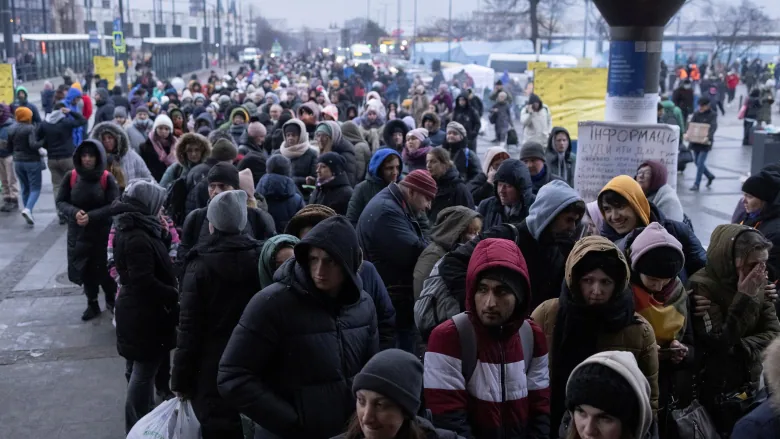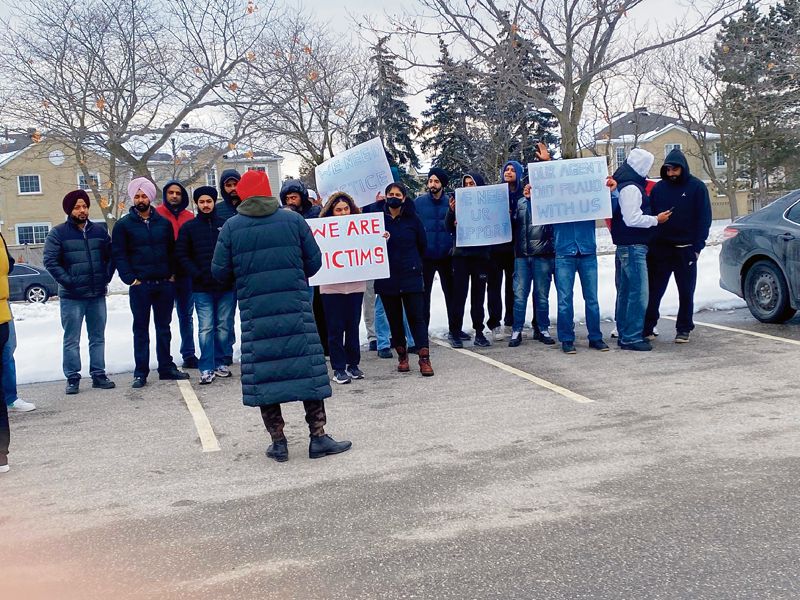Imagine a society where dreams disappear, ambitions crumble, and the chase of educational attainment has become bound to an illusionary web. This world welcomes ambitious students into the dark side of admission fraud, in which illusions reign supreme and innocent people pay the price. Unscrupulous men cloak themselves as guardians and exploit the vulnerable hearts and ideas of ambitious individuals within this hidden world. Each year, several students plunge into a journey to mold their lives and future through education, eager to open doors to new ventures. Under the table, however, are opportunistic individuals who prey on those dreams. Yielding false promises, forged documents, and the art of manipulation as their weapons, they showcase an act of duplicity, leaving innocent students at their mercy.
A similar tragedy occurred recently in the case of 700 students who faced deportation from Canada after Canadian authorities found that their admission offer letters to educational institutions were fake. The students, a majority of whom are from the Indian state of Punjab, traveled to Canada on student visas and completed their studies at various universities and colleges. However, the admission letters submitted to the authorities proved to be false when they applied for permanent residence.

700 Indian students travelled to Canada for their higher studies only to find out that the admission offer letters were fake
The students have been issued deportation notices and are now scrambling to find a way to stay in Canada. Following this, Punjab NRI Affairs Minister Kuldip Singh Dhaliwal has put forward that the students are mere victims of fraud and they have been living and working in Canada legally for several years. At the same time, the Canadian government needs to be fair to those who were cheated by the clique of fraudsters as part of upholding the integrity of the immigration system. The government has said that it is committed to addressing these concerns and it will be more vigilant in screening applications for study visas.
As a result of the fiasco, the victims, the students, have three options: either appeal the decision or appeal for a stay of removal, or leave on their own. All three options have their respective outcomes. If the students appeal the decision, the case will be reviewed by an immigration judge who will decide if the students should be allowed to stay or not. If a stay for the removal is applied for, they will be allowed to stay in Canada as their case gets reviewed; but they will not be able to study or work during this time. Lastly, if the students voluntarily leave the country, they won’t be prohibited from returning in the future, however, they would have to apply for a new visa. Currently, the Government of Canada has decided to hold the deportation of these 700 Indian students at the request of Aam Aadmi Party MP Vikramjit Singh Sahney.

Following the debacle, affected students have three choices: appealing the decision for an immigration judge’s review, seeking a stay to remain in Canada without work or study, or departing voluntarily, requiring a new visa for future return.
Similarly, in 2018, more than 100 Indian students were arrested in the US on charges of visa fraud. In 2020, the Indian Government arrested 12 people in connection with an admission fraud scheme that involved more than 1,000 students. These are just a few examples of the many cases of admission fraud involving students. While the dark shadow of admission and immigration fraud lingers over the dreams of lakhs of Indian students, it is essential to understand that there is always a scope for change. By implementing effective preventive measures such as strengthening regulations, enhancing transparency and accountability, government collaboration and information sharing, proper accreditation and verification, genuine counseling services etc. the Society can dismantle the fraudulent networks and protect the dreams of countless students. At last, protecting the integrity of the education system is a shared responsibility of educational institutions, regulators, students, and their families.

Kashish Bansal
Senior MemberDeepseek: A journey from Hedge Funds to AI
Introduction: In this busy and bustling day to day life of ours managing our Finances…
Beyond Numbers: The Human Cost of Infosys’ Layoffs and the Global Normalization of Workforce Reduction
A Familiar Script: Infosys and the Corporate Playbook of Disposable Labor: On February 7, 2025,…
Understanding Tariffs and Their Impact on India
What Are Tariffs? Tariffs are taxes governments levy on foreign imports to make the goods more…
The Economics of Player Transfers in Football
Introduction: In the world of football player transfers are more than just transactions, they are…
Session 5
Session 5- Unraveling Equity Derivatives: Insights from the Fifth Development Session The Fifth Development Session…
An Attempt To Deteriorate The Creditworthiness of Indian Entities
Introduction: The growth story of India in almost every sector is not alien to the…








